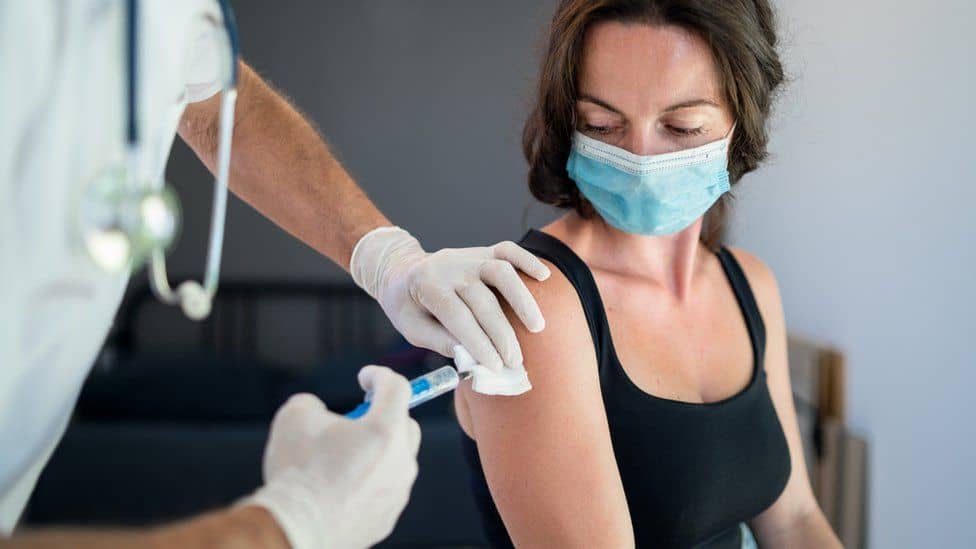Vaccination needs to ‘accelerate substantially’ to avoid lockdown in fall, says top Halton doctor
Published September 16, 2021 at 4:29 pm

COVID-19 cases have been on the rise in Oakville, Burlington, Milton and Halton Hills.
“In the beginning of August cases began to rise again,” Halton Region Medical Officer Dr. Hamidah Meghani told Regional Council in her COVID-19 update. “We are now seeing an average of about 28 new cases reported per day.”
Dr. Meghani said as of Sept. 12, Halton has seen over 19,000 cases of COVID-19, which includes 172 current active cases and 240 deaths.
“In recent days, the incidents rate began to rise just above the Ontario Science Advisory Table’s recommended threshold of 25 cases per 100,000 population,” added the Halton Region Medical Officer. “As of Sept. 12, the incidents rate was approximately 30 new cases per 100,000 Halton residents.
“When cases are above this threshold, experts at the Science Table encourage people to work from home where possible, only leave home for essential activities and restrict their indoor activities.”
Dr. Meghani explained it is important to note that this threshold was established prior to widespread vaccination.
“Although we now have vaccination as an additional protection for our community and in light of the increase in the incident’s rate, it is important to follow public health measures like physical distancing and wearing a mask,” she said.
Projections done by the Ontario COVID-19 Science Advisory and Modeling Consensus Tables in early September show if contacts continue to increase throughout the fall, we could see upwards of 9,000 cases per day in Ontario in October. However if contacts decrease, a best case scenario could see cases dip below 500 per day by October.
The modeling scenarios all assume continuing progress on vaccination. Currently, 856,340 doses have been given to those eligible in Halton Region.
A total of 425,825 people have been given first doses in Halton Region, while 430,515 have received a second dose.
A total of 85 per cent of the population has received one dose, while 81 per cent are fully vaccinated.
“The modeling demonstrates how vaccination and reducing contact will be critical for minimizing the impact of the fourth wave,” Dr. Meghani said. “In order to avoid a lockdown in the fall, vaccination needs to accelerate substantially and we need to reduce contacts until vaccination is high enough to protect the population.
“This could include reducing indoor capacity, maintaining physical distancing, limiting large gatherings, continuing indoor masking, working from home as much as possible and implementing policies to accelerate vaccine uptake.”
As for the number of COVID-19 outbreaks in Halton, Meghani explained those remained relatively low throughout the summer. Including at places such as long-term care and retirement homes which she says have benefited from onsite COVID-19 vaccination.
As of Sept. 12, there was just one outbreak in a long-term care home as well as five outbreaks in work places.
“This is similar to trends seen in other health units,” Dr. Meghani said. “The significantly reduced outbreak activity in long-term care homes is a credit to the work done to vaccinate the residents, staff, students and volunteers in these facilities.”
Ministry of Health and Long-Term Care have recent estimates that show across Halton that about 85.5 per cent of staff, students and volunteers have had at least one dose of COVID-19 vaccine and close to 79 per cent are fully vaccinated.
Recent estimates from the Ministry of Long-term Care show that across long-term care homes in Halton about 88.5 per cent of staff, students and volunteers have had at least one dose of COVID-19 vaccine and close to 79 per cent are fully vaccinated.
This is in addition to having very high rates of vaccination amongst residents.
“This is good news, but I do want to caution there remains work to be done to increase COVID-19 vaccine uptake in all healthcare workers and specifically in long-term care homes staff,” Dr. Meghani said.
While we are in a fourth wave of the COVID-19 pandemic, both federal and provincial models are predicting a substantial fourth wave in Ontario to increase the transmissibility of the Delta variant.
The wave, says Dr. Meghani, is expected to effect all age groups with the potential to exceed ICU capacity.
“Vaccination offers substantial protection against severe health outcomes, so we do not expect to see the same proportion of severely ill cases among people who are vaccinated compared to previous waves,” she said.
“However, among people are unvaccinated we do expect to see an increase in the number of seriously ill people needing hospital care as some workplaces and schools have reopened in the past month.”
There has been a general plateauing of COVID-19 patients in Halton hospitals, Dr. Meghani says.
A snapshot of hospital data from Sept. 13 showed two-thirds of COVID-19 patients in Halton hospitals were Halton residents, while one-third lived outside of Halton and 78 per cent of COVID-19 patients at Halton hospitals were under the age of 60.
Nine of the patients across all the hospitals were known to reside in a long-term care home.
Dr. Meghani says since early summer they have seen a steady increase in the Delta variant cases as the Alpha variant decreased.
“Since July, the Delta variant has become the dominant strain for all COVID-19 cases in Halton,” she said. “To date, we have close to 1,000 cases among Halton residents which have been presumed or confirmed as Delta variant cases.”
insauga's Editorial Standards and Policies advertising






